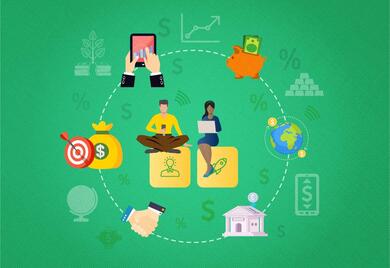Posts by Financial Institutions

How to Leverage Green, Social and Sustainable Bonds in Our Region?
Multilateral development banks are playing a major role in the creation and expansion of a green, social and sustainable bond market, known as thematic bonds, in Latin America and the Caribbean. What should investors and clients expect from them?

Four Success Stories In The Battle For Financial Inclusion
Latin America is still the leading region with regard to regulations and infrastructure that support financial inclusion. How can this opportunity be exploited to achieve more ambitious results?

Thematic Bonds: Essential Tools for Development
Achieving the Sustainable Development Goals requires the collaboration of governments, the private sector, and civil society. Thematic bonds provide our region with financial and technical knowledge, as well as opportunities to share valuable experiences.

Managing risks in an era of stakeholder capitalism
In 2020, firms will be judged less on how they respond to crises and more on how they anticipate them. Engaging stakeholders through technology is an important first step.

Revolution 4.0: What's Our Region's Financial Sector Role in It?
The transformations of the Fourth Industrial Revolution now require rethinking the responses to the demands of an economy that is changing by leaps and bounds. Latin America and the Caribbean expect much from the financial sector, but what exactly?

Global Microscope 2019: What Can Decision Makers Learn From It?
The Global Microscope on Financial Inclusion is a wealth of information on Latin America and the Caribbean. It is also an insightful road-map for smart decision-making in the year ahead.
